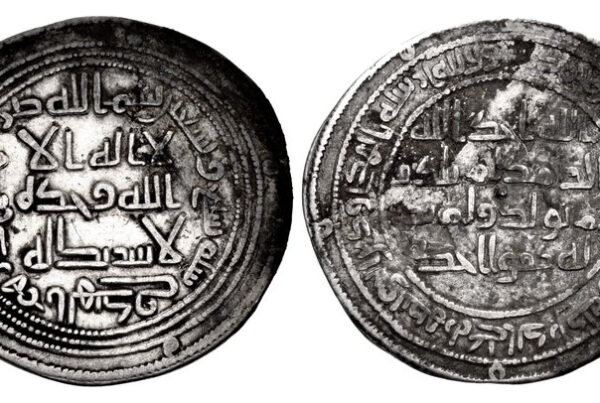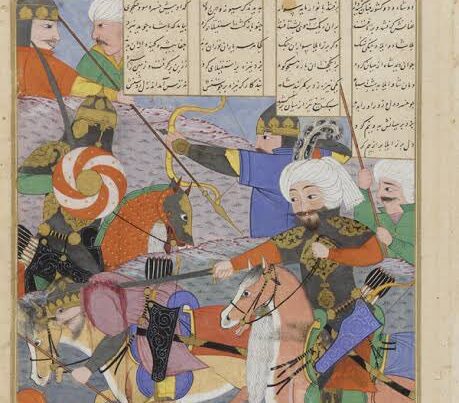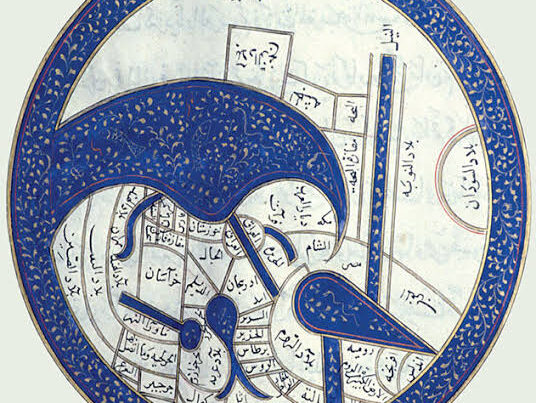Islamic traditions from the early centuries of the rise of Islam are rich with tales of interactions between Muslims and other religious groups that they encountered during their expansions. One such tale is of an 8th century interaction between the Caliph of the Islamic world and the Buddhist community of Sind from modern Pakistan.
Of Caliph Harun Al-Rashid and the Buddhists of Sind.
During the era that is known as the “Golden age of Islam”, it was a norm for the court of the Abbassid caliph in Baghdad to house people from the Indus Valley in modern Pakistan. Many theologians, physicians, mathematicians and men of high knowledge travelled to Baghdad to help with the translation of treatises on various subjects.
One tale is narrated such that once in the court of the great caliph Harun Al-Rashid, a messenger from a Buddhist king in Sindh appeared. Much to everyone’s surprise he did not ask for anything or make demands but rather put up a challenge to the Caliph. A challenge in the domain of theology.
The king’s message read that he had heard that there was no truth in the caliph’s religion and that it was spread by the sword. So if there was any truth in it, he should send a scholar who could debate with the King’s own men of religious knowledge and acumen and prove it to them that the Caliph’s religion is based on the truth. Thus a scholar from the courts of the caliph in Baghdad made the tedious journey and arrived in Sindh. The debate commenced and during the continuous clash of beliefs the Buddhist scholar questioned the concept of omnipotency by asking if god being all powerful could create another god. The muslim scholar, taken by surprise, couldn’t offer an answer and thus thus the local king declared both the Buddhist scholar and Buddhism to have been the true path to follow.
As news of the defeat reached Baghdad, The caliph summoned all his scholars who all failed in answering the question until from amongst the congregation a young boy stood and said that the objection is baseless. If god creates an entity like himself, it would still be god’s creation. But god is no one’s creation. It would be an insult to himself to create an entity like himself. It is the same as asking it god sleeps? Or eats? Or is ignorant? He cannot do any of these since these are similar insults to his dignity. The entire congregation was satisfied with the boys answer and it was decided that another older scholar would be sent to Sind to once again initiate the debate this time taking help from the boys wise answer.
Now 2 versions of the events which followed exist:
According to one, the debate once again took place and reached the same juncture but this time the Muslim scholar’s answer and wit left the Buddhist scholar completely befuddled in debate to the point that the Buddhist king openly accepted Islam.
Another version speaks that the most significant of Buddhist scholars had a spy sent out to inquire of the incoming Muslim scholar and upon discovering that he was a man of merit and knowledge, he had the Muslim poisoned before he could ever reach Sind for the debate.
The actual chances of such an event happening in history are bleak not only because these events were narrated centuries after the era of the Abbasids but also because Sind’s Buddhist ruling class has been deposed much before the Umayyad conquest of Sind. However Such tales narrate for us the nature of interactions between Muslims and other groups in the early centuries of Islam. Much to the surprise of Pakistanis, the Muslims of the early caliphates and the Buddhists and Hindus of the Indus Valley had a large amount of intellectual and theological contact. The contact intensified during and after the Barmakid Vizirs and during the era of multiple caliphs. The contact waned with the loss of the caliphate’s control over Sind in 871 CE and the coming of the Habbarid when contact shifted from Baghdad to the Red Sea.
References:
“Religious relations between Arabia and India” – S. Nadvi, as quoted by J. Elverskog in “Buddhism and Islam on the Silk Road.”

Islamic History
Caliph Harun Al-Rashid and the Sindhi Buddhists
About Me
Peshawar, Khyber Pakhtunkhwa
Pakistan
25000
Email: mhuzaifanizam0118@gmail.com



